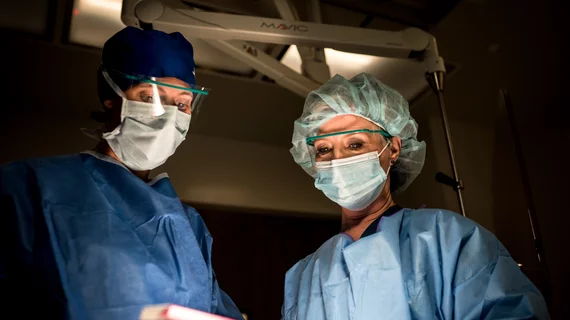Cath lab techs and nurses see new normal with post-COVID pay
Three years out from the COVID-19 pandemic and the post-pandemic "great resignation," cath lab technologist and nurse wages and job satisfaction are starting to normalize. That's according to the 2023 Wage Report recently released by Springboard Healthcare Staffing, an Ingenovis Health company
This annual survey of techs and registered nursed (RNs) focuses on wages and other trends among healthcare professionals who work in the cath lab, electrophysiology (EP) and interventional radiology (IR) labs.
"We’re beginning to realize the new normal coming off the pandemic as hospitals are successfully stabilizing cardiovascular teams. In 2023, 63% of permanent employees saw their wages increase in contrast to 2022, when only 2% saw their wages increase, and that's driving the increase in our survey's satisfaction numbers," explained Springboard President Catherine Pearson.
She added that the demand for cardiovascular nurses and technologists remains very strong as patients continue to face high cardiac risks.
"With a virtual 0% unemployment rate for highly sought after professionals, hospitals still require contingent workforce to meet the patient needs in their communities," Pearson said.
The survey showed several interesting trends that reflect changes in the cath lab staffing market.
Travel nurses and techs see declines in pay
In the post-COVID era, wages for permanent RNs are rising, while wages for travelers are decreasing. However, travel healthcare works continue to be paid a difference of about $24.73 more per hour. Springboard said this is 49.07% more pay for travelers compared to permanent staff.
Permanent nurse wages grew 3.7% from last year, but there was less than the increases of 17.22% in 2021 and 10.2% in 2022.
As demand for travel nurses declines and permanent RN wages have increased, travel RN wages declined. Their wages dropped 9% in 2023 after seeing a large increase of 31.7% in 2021 and another slight bump of 1.6% in 2022.
Travel technologists saw a similar drop of 6.8% after a large 19.4% increase in 2021 and 6.8% increase in 2022.
Permanent technologists saw a lower drop of 2.11% in 2023 compared to increases of 21.68% in 2021 and 11.33% in 2022.
Cath lab staff report high satisfaction on pay and employers
During the pandemic in 2021, survey respondents reported only 46% were satisfied with their wages. But with pay increases, this rose to 68% in 2022 and 73.6% in the most recent survey.
This corresponded with similar numbers for how they felt about being satisfied with their employer. It was only 47.29% in 2021, rose to 68.5% in 2022 and is now 73.2%.
Regional variations in cath lab pay
The West Coast with its very high cost of living continues to have the highest wages. The highest paying wages are $60.65 per hour in the West for permanent staff and up to $81.89 for travelers.
The lowest wages in the country are found in the Midwest at $45.99 per hour for permanent staff and $71.36 for travelers in the South.
The national average for a cath lab RN is $51.02.
The national average for a cath lab tech is $48.32.
The variations in the average pay between cardiac cath lab, EP and IR staff positions were all within a dollar of each other, according the the survey.
On-call rates increased 11.93% from $5.65 per hour in 2022 to $6.32 in 2023. Regional variation was $7.98 in the west on the high, end to $5.49 in the South.

